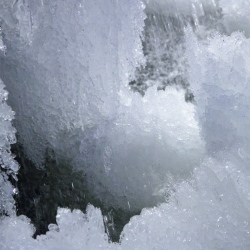
In people’s minds, Antarctica may appear as a bleak white landscape but scientists claim the continent is turning green because of a warming in the climate. A team of British researchers have tested three separate sites and concluded that the quantity of moss and the pace the plant is growing at has increased rapidly in the last 50 years.
"Temperature increases over roughly the past half century on the Antarctic Peninsula have had a dramatic effect on moss banks growing in the region," said Matt Amesbury, a research fellow at the University of Exeter.
"If this continues, and with increasing amounts of ice-free land from continued glacier retreat, the Antarctic Peninsula will be a much greener place in the future," he said in a university press release on Thursday.
The scientists analyzed data for the last 150 years and found evidence of points in time in the last 50 years after which biological activity increased.
"The sensitivity of moss growth to past temperature rises suggests that ecosystems will alter rapidly under future warming, leading to major changes in the biology and landscape of this iconic region," said Professor Dan Charman, who led the research project.
Charman said the findings on Antarctica mirrored other studies of the Arctic Circle at the North Pole.
"In short, we could see Antarctic greening to parallel well-established observations in the Arctic.
"Although there was variability within our data, the consistency of what we found across different sites was striking," he added.
The same group of researchers published a study focusing on one site in 2013, and said this new research confirms that the "greening" trend can be applied to a much larger region.
The new paper, published in the journal Current Biology, is entitled: "Widespread biological response to rapid warming on the Antarctic Peninsula."
Plant life only exists on about 0.3 percent of Antarctica according to the scientific team who now plan to examine core records dating back over thousands of years to test how much climate change affected ecosystems before human activity became a factor.
